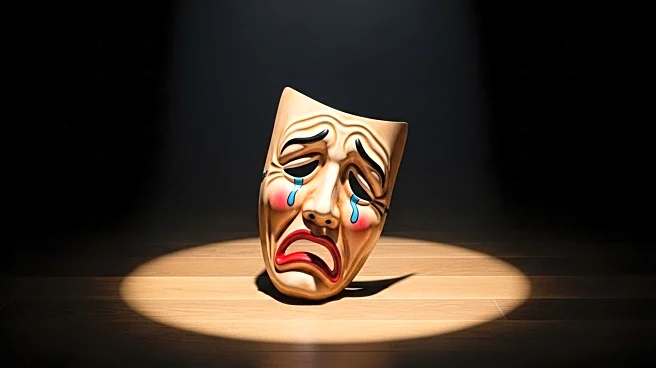What's Happening?
Jessica Kirson, a comedian from New Jersey, has publicly expressed regret for her involvement in the Riyadh Comedy Festival held in Saudi Arabia. Kirson, who is openly lesbian, participated in the festival with the intention of supporting LGBTQ+ individuals in Saudi Arabia, a country known for its restrictive policies towards the community. Despite receiving positive feedback from attendees who appreciated her presence, Kirson regrets performing under the auspices of the Saudi government, which has faced criticism for its human rights record. The festival, touted as the world's largest comedy event, featured several high-profile comedians, including Dave Chappelle and Kevin Hart. Kirson plans to donate her earnings from the event to a human rights organization.
Why It's Important?
Kirson's apology highlights the complex dynamics of international cultural events, especially in countries with controversial human rights records. Her decision to donate her earnings reflects a broader trend among artists and performers who seek to balance professional opportunities with ethical considerations. The incident underscores the challenges faced by LGBTQ+ individuals and advocates in navigating global platforms, and the potential backlash from fans and followers when perceived ethical lines are crossed. This situation may influence future decisions by performers considering participation in events hosted by governments with contentious policies.
What's Next?
Kirson's decision to donate her earnings to a human rights organization may prompt other performers to reconsider their involvement in similar events. The backlash could lead to increased scrutiny of international festivals and the ethical implications of participating in them. Comedians and artists may face pressure to align their professional choices with their personal values, potentially affecting the lineup of future events in countries with controversial policies.
Beyond the Headlines
The incident raises questions about the role of cultural diplomacy and the power of art to influence social change. Kirson's participation, despite her regrets, may have provided visibility and support to LGBTQ+ individuals in Saudi Arabia, highlighting the potential for cultural events to serve as platforms for advocacy. However, it also illustrates the ethical dilemmas faced by artists in balancing advocacy with complicity in government-sponsored events.









